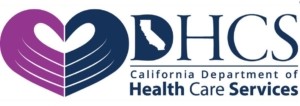Finding the Best Treatment Programs for Drug and Alcohol Abuse
Table of Contents
Recovering from addiction requires great bravery and is the best thing you can do to become healthier and separate yourself from the vicious cycle of drug and alcohol abuse. If your goal is to achieve long-term sobriety from addiction, it’s important to choose a drug rehab center that offers science-based treatments proven to work. Addiction affects each person differently; therefore, an individualized, science-based approach is needed to help every person experience a successful, long-term recovery.
The best addiction treatment programs are backed by scientific evidence and are individualized to meet each person’s unique needs as they pertain to recovery. Here’s a breakdown of the types of programs and features to look for when choosing a drug or alcohol rehab center for yourself or a loved one.
Drug and Alcohol Detox
Depending on the drug of choice and length of use, detox is usually the first stage of addiction treatment that helps people manage and reduce the physical symptoms of drug and alcohol withdrawal.
Withdrawal is one of the toughest stages of addiction recovery, especially since symptoms can sometimes be severe and life threatening. Supervised drug detox that takes place in a controlled environment may prevent potentially life-threatening complications that can otherwise appear when patients are left untreated, according to the Substance Abuse and Mental Health Services Administration.
The best drug and alcohol detox programs use FDA-approved medications to reduce and relieve withdrawal symptoms, including drug cravings. When researching addiction treatment centers, look for drug detox programs that use medications and alternative therapies such as yoga and meditation that complement detox and recovery. Detox treatments are always individualized based on the severity of the addiction and the substances that were used.
Behavioral Therapies in Residential Inpatient Rehab
While detox helps with the physical aspect of addiction recovery, behavioral therapies are effective at helping people recover from the emotional, mental, and psychological aspects of addiction.
Many people start using drugs and alcohol as a way to cope with trauma, stress, loneliness, pain, and other negative emotions, feelings, or life events. Behavioral therapies address the root causes of each person’s addiction so they can reconnect with humanity with healthier coping methods so they don’t turn to drugs or alcohol.
A person’s treatment program at drug and alcohol rehab is always comprised of a variety of evidence-based behavioral therapies and is tailored to meet their unique individual needs. For instance, a person who went through trauma may receive trauma-focused cognitive-behavioral therapy, while a person who used drugs to cope with bipolar disorder or PTSD may receive specialized mental health therapy. A 2017 study published in the Journal of Systems and Integrative Neuroscience cited that patients with mental illness and alcohol use disorder who were treated for both conditions at the same time experienced better short- and long-term outcomes than peers who received one treatment before the other.
Recreational Therapies and Amenities
Addiction recovery is meant to be an exciting, fulfilling journey. The best drug rehab centers offer patients a variety of recreational therapies and amenities proven to enhance recovery.
Outdoor therapy, music therapy, and art therapy can be fun and engaging for all patients and are backed by science at facilitating healthy, long-term recovery.
Other amenities such as swimming pools, spa, and game rooms allow patients to bond with one another and can make the recovery experience more enjoyable. Many patients say amenities such as these helped pull them out of isolation and feel more motivated about recovery.
Dana Point Rehab Campus offers drug detox, alcohol detox, and a wide range of science-based, individualized rehab programs to help people achieve long-term recovery from addiction. Call us today at 949.569.7517 to begin your recovery journey.







